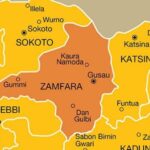Ten Sahelian countries, including Nigeria, have unveiled a bold $8 billion irrigation investment plan aimed at rehabilitating and expanding 1.2 million hectares of farmland to strengthen food security, combat climate change, and drive economic growth across the region.
The initiative was presented at the Hand-in-Hand Subregional Investment Forum convened by the Food and Agriculture Organisation of the United Nations (FAO) in Abuja, with ministers, regional bodies, international partners, and private sector leaders in attendance to deliberate on the irrigation investment plan.
According to officials, $2 billion has already been committed by participating countries, leaving a $6 billion funding gap that requires urgent support from development partners and investors.
ALSO READ: Akwa Ibom to host 4th agribusiness international conference on food security
FAO Subregional Coordinator for West Africa, Mrs. Bintia Stephen-Tchicaya, said the irrigation drive is central to agricultural transformation in the Sahel and West Africa.
“Irrigation is not just a technical solution; it is a strategic enabler of food sovereignty, climate adaptation, and community resilience. This forum is a platform to turn these priorities into action through collaboration and investment,” she stated.
The investment plan involves Burkina Faso, Chad, Cameroon, The Gambia, Guinea, Mali, Mauritania, Niger, Nigeria, and Senegal, working alongside ECOWAS and CILSS to present joint proposals and mobilize financing.
Beyond irrigation, the initiative also focuses on strengthening regional value chains and building reliable market linkages to absorb increased food production.
Stephen-Tchicaya emphasised that challenges such as land degradation, water scarcity, food insecurity, and youth unemployment are interconnected and can only be addressed through subregional cooperation.
FAO Representative in Nigeria and to ECOWAS, Mr. Hussein Gadain, urged participating governments to place agricultural transformation at the center of their national and regional agendas, simplifying policies to attract private investors and aligning with FAO’s Hand-in-Hand Initiative.
“The Sahel is not just a region of need; it is the next frontier of opportunity. With fertile land, vast resources, and the youngest population in the world, this region can become a powerhouse of agricultural innovation, green job creation, and regional trade,” Gadain said.
He outlined three pillars for collective action: sustainable land and water management, transformation of agri-food systems and trade, and capacity-building for youth and digital innovation.
FAO officials stressed that neither governments nor international organizations can deliver the transformation alone. They called for partnerships with financial institutions, the private sector, and civil society to co-design and co-implement solutions.
The Abuja forum also aims to consolidate a united regional voice ahead of the Hand-in-Hand Investment Roundtable in Rome next month, where West African and Sahel countries will pitch their joint investment cases to the global community.
With nearly one in five Africans, about 307 million people, facing hunger in 2024, speakers warned that collective, large-scale action is critical.
WATCH TOP VIDEOS FROM NIGERIAN TRIBUNE TV
- Relationship Hangout: Public vs Private Proposals – Which Truly Wins in Love?
- “No” Is a Complete Sentence: Why You Should Stop Feeling Guilty
- Relationship Hangout: Friendship Talk 2025 – How to Be a Good Friend & Big Questions on Friendship
- Police Overpower Armed Robbers in Ibadan After Fierce Struggle






